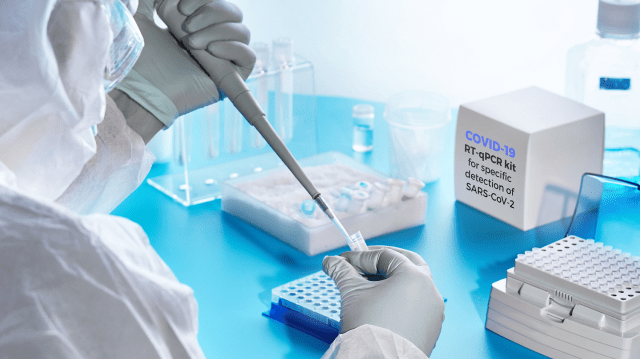Health
COVID-19: NCDC outlines principles of engagement with private laboratories

The Nigeria Centre for Disease Control (NCDC) on Tuesday outlined the principles of engagement with private sector laboratories as an important resource to accelerate availability of COVID-19 testing in Nigeria.
Dr Chikwe Ihekweazu, Director General, NCDC, told our reporter in Abuja, that all private sector laboratories should have valid registration with relevant national and state authorities to perform diagnostic testing.
Ihekweazu said that all staff working within the facilities should be appropriately trained and registered with appropriate national bodies.
He stressed that private laboratories should abide by the roles of public health laboratories listed above:
“Where feasible, testing should be conducted at no cost to the patient. If private patients are charged for diagnostic tests, it should be at a fixed cost with no additional charges.
“Private laboratories should agree to sign a Memorandum of Understanding (MOU) with the state health authorities, while the NCDC will provide overall coordination and technical support,” the NCDC boss said.
He said that the NCDC would be committed to supplying reagents and extraction kits for continued operations, adding that where possible, private sector laboratories should work with states to procure reagents.
“Other principles of engagement are that the laboratories must maintain continuity of operations; establish and maintain the ability to sustain operations over mid to long-term periods.
“Ensure effective information exchange, ensure timely exchange of laboratory information and data with laboratory network coordinator, the state level EOC and national EOC and other stakeholders.
“The private laboratories must also maintain chain of custody procedures, ensure chain of custody requirements are maintained throughout the sample management process.
“They must facilitate access to training, provide resources for training, for testing, collection of specimens, handling, packaging, and shipping samples.
“Ensure technical standards, participate in national and international quality assurance panels to demonstrate technical competencies,” Ihekweazu explained.
Ihekweazu said that the mechanisms of engagement of the private sector as part of national COVID-19 testing laboratory network would be between the state and private sector laboratories, with technical guidance and support from the NCDC.
“A Memorandum of Understanding (MoU) may be signed between the state and the private sector that provides details of cost implications and operational support.
“As part of its national mandate, the NCDC is responsible for providing technical support to the private laboratory,” he said.
The NCDC boss said that private laboratories should abide by the roles of public health laboratories listed above.
He listed other criteria for private laboratories to be accepted into the NCDC COVID-19 laboratory network, as assessment of facilities to be conducted by NCDC staff and other relevant stakeholders.
“Completion of the COVID-19 Laboratory Assessment Checklist and participation in a COVID-19 quality assurance panel.
“The private laboratories must provide all required staff with Personal Protective Equipment (PPE) and laboratory consumables required for testing.
“They must also provide all infrastructure needed to ensure 24-hour operations, seven days a week.
“And they must counsel patients about signs and symptoms of complicated COVID-19 disease and advise them to seek care through national referral systems if these symptoms develop,” Ihekweazu said.
According to the NCDC boss, its operations and activities are guided by five key goals to accurately measure the burden of infectious diseases in Nigeria, and ensure Nigeria is able to meet its international obligations as a member of the World Health Assembly.
Ihekweazu said further that the NCDC was to develop a public health laboratory service network to support the detection, prevention of and response to critical infectious diseases, and to reduce the adverse impact of predictable and unpredicted public health emergencies.
“Create an efficiently managed and evidence-based organisation with a clear focus of health promotion and disease prevention.
“NCDC currently operates through five directorates: Surveillance and Epidemiology, Public Health Laboratory Services, Health Emergency Preparedness and Response, and Prevention and Programmes Coordination.
“Other directorates are Finance and Accounts, and Administration and Human Resources,” he explained.




 Davido's Net Worth & Lifestyle
Davido's Net Worth & Lifestyle 
